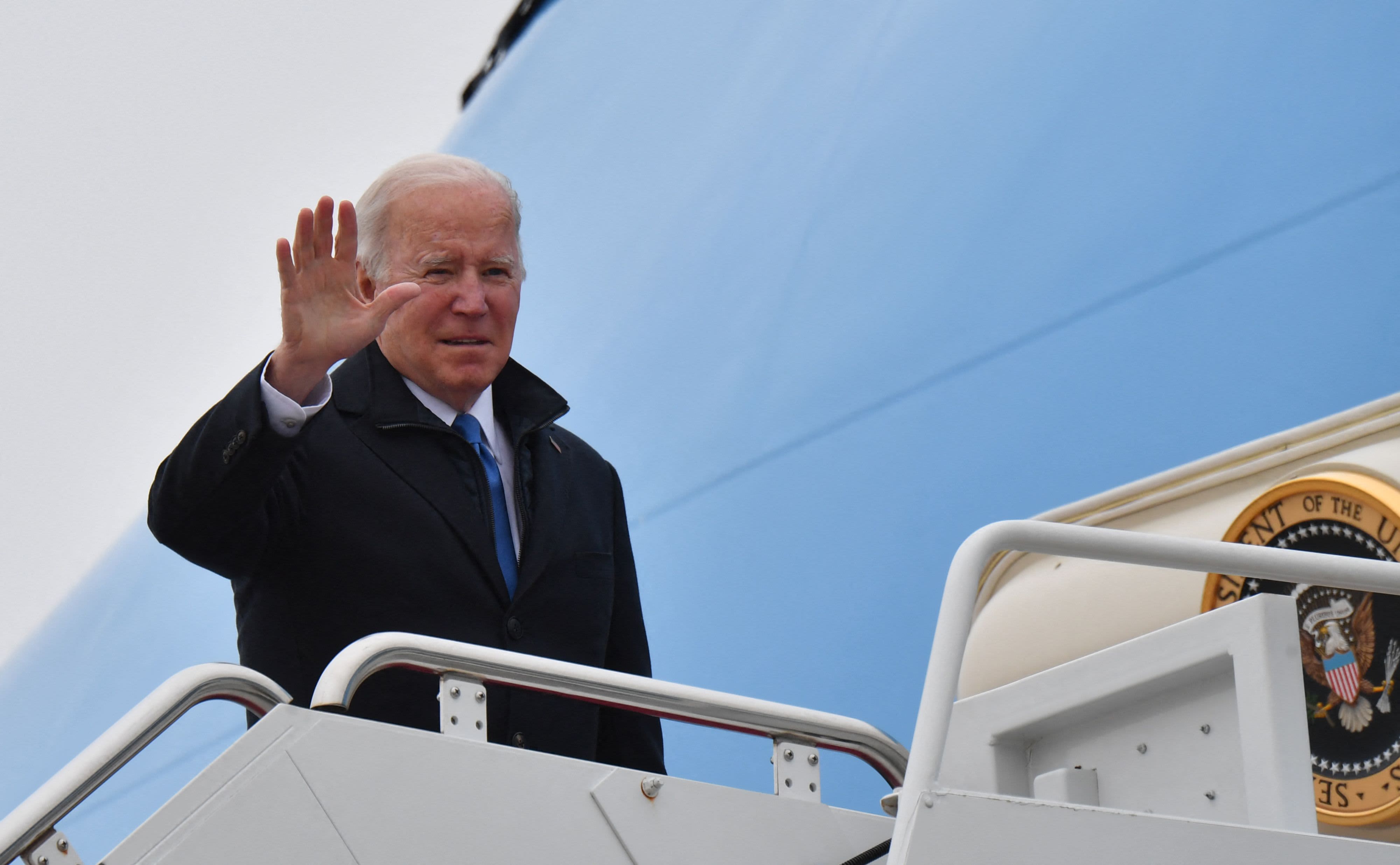
U.S. President Joe Biden holds virtual talks with Russia’s President Vladimir Putin amid Western fears that Moscow plans to attack Ukraine, during a secure video call from the Situation Room at the White House in Washington, U.S., December 7, 2021.
The White House via Reuters
WASHINGTON – President Joe Biden said Wednesday that his administration was not considering sending U.S. troops to Ukraine amid an alarming Russian military buildup on its shared border.
“Unilateral troops in Ukraine not on the table,” Biden told reporters at the White House. “If you invade Ukraine there will be severe consequences. Economic consequences. He knows that,” the president said, referencing what he told Russian President Vladimir Putin in their two-hour call the day before.
Biden said in lieu of a U.S. troop deployment to Ukraine, his administration would work to reinforce American military presence in NATO countries.
Meanwhile, the Kremlin has dismissed suggestions that Moscow was preparing for an attack on Ukraine and defended its right to deploy troops on its own territory. Putin has also accused NATO of mounting an attack on Russia.
Putin has demanded that Ukraine be denied entrance into NATO, where an attack on one member country is considered an attack on all of them.
The Kremlin has previously characterized NATO’s eastward expansion as a direct security threat, arguing that Ukraine’s acceptance into the alliance could result in NATO troop movements on Russia’s borders.
Ukraine has warned Washington and European allies for weeks that Russian troops were massing along its eastern border, a development that mimics Moscow’s 2014 invasion of Crimea. The annexation of the Black Sea peninsula sparked an international uproar and triggered a series of sanctions on Moscow.
The Biden administration is eager to make it clear to Russia and the world that it is prepared to be tougher this time around, compared to 2014, when Russian forces annexed Crimea.
“The things we did not do in 2014, we are prepared to do now,” national security advisor Jake Sullivan said Tuesday on the heels of the call.
When asked specifically what measures the U.S. was prepared to impose, Sullivan declined to elaborate.
Sullivan added that the White House was working closely with European allies, experts from the Treasury Department, the State Department and the National Security Council on a package of economic and political countermeasures.




